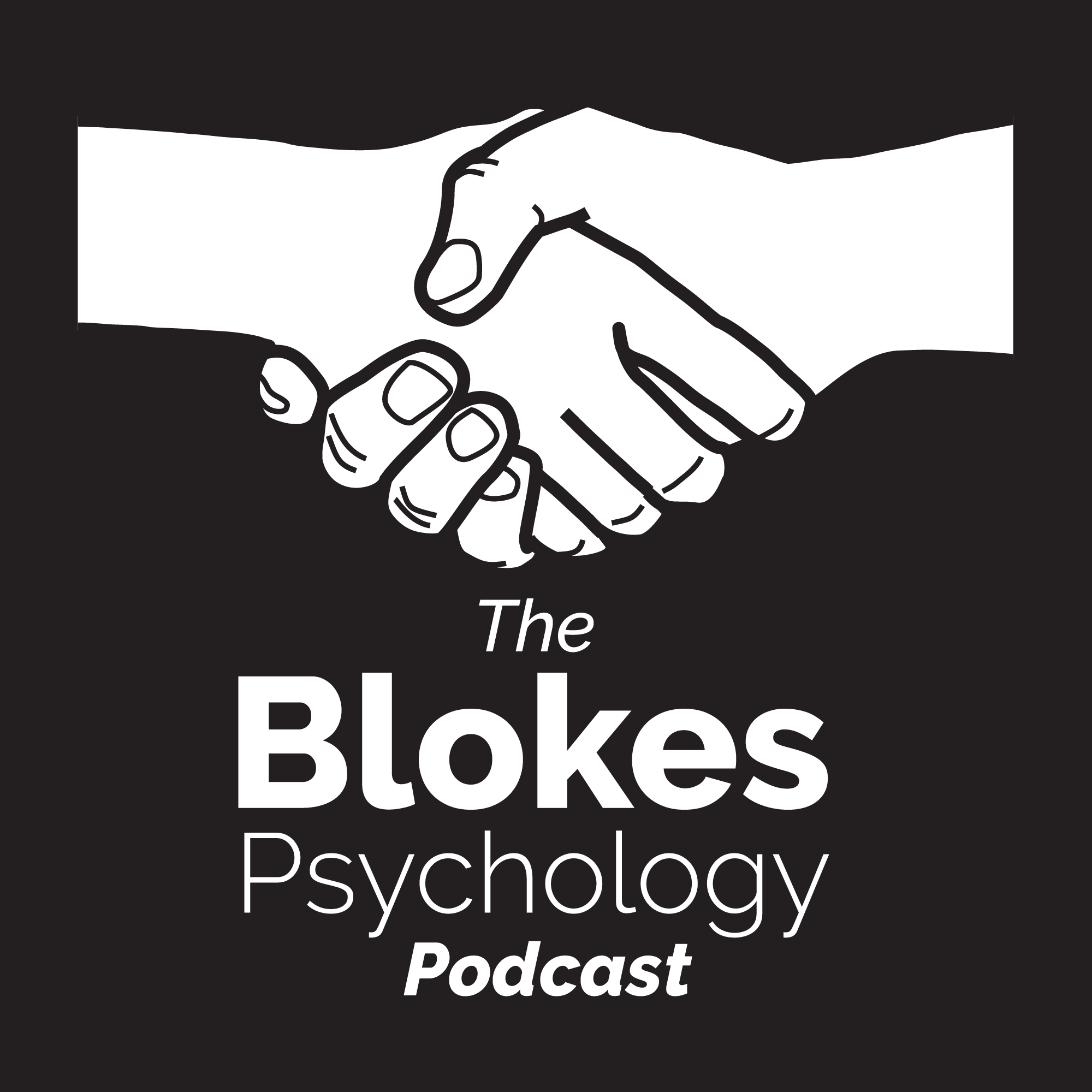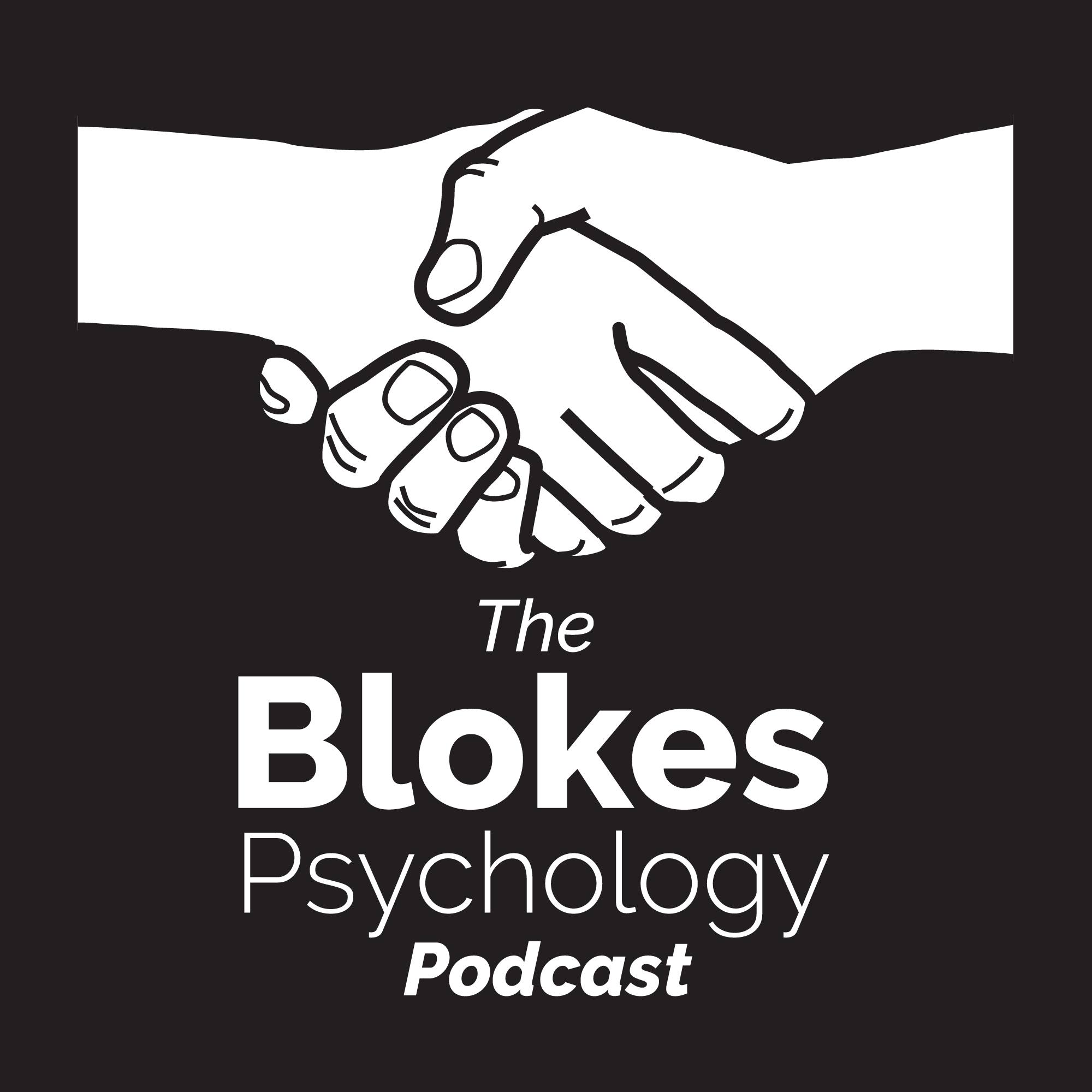One year ago, I dusted off the clinical cobwebs after a stint in management and returned to client facing work as a psychologist after over a year hiatus. On my anniversary at Blokes Psychology and almost 700 appointments later I decided to take the opportunity to reflect and share some of my learnings over the past year working as a psychologist exclusively with men.
Men are complex
Of course all humans are complex, but in the therapy environment men present with a number of additional complexities. These days it is commonly acknowledged that men don’t seek psychological help as much as women, but even when they do, they tend to drop out of therapy quicker and before completion. This presents many challenges for new and experienced therapists alike and when reflecting on those clients who have remained engaged with myself over the past year, I have observed there is one common factor – vulnerability. Those who allow themselves to experience and be vulnerable in therapy have tended to be those who return and get the most out of it. This presents a number of issues though because men’s reluctance to engage in therapy is often due to their emotional restrictiveness, or not knowing how to be emotionally vulnerable, and not wanting to just talk about their feelings. Therapy is much more than this, but also it is very much around talking about, acknowledging, and processing feelings and this is confronting for a lot of people who haven’t learned how to do this, or have learned to respond with anger when their vulnerability is triggered. (I often say that we don’t have anger problems, we have vulnerability problems).
I’ve found myself asking why is it that men are less willing to be emotionally vulnerable and choose to externalize or express anger or bottle up emotions and the answer I believe is embedded more deeply than just gender socialization (that is the process by which we learn about expectations, attitudes and behaviour associated with men and women). What I have learned from working exclusively with men for the past year, is there is no universal reason for why some men have less emotional expression than women, or in fact some other men. For some they have never had healthy emotional expression modelled to them, some were punished or shamed for expressing themselves or invalidated when they did, for others it may have been seen as weak, and for many this was kneaded out of them through social and cultural norms. The list goes on, but regardless of the reason, when people with these histories present for therapy, that takes the most courage and strength. When people with restricted emotional expression/intelligence/capacity, or whatever we call it attend therapy, it can be challenging, but oh so rewarding at the same time. It is hard work for them, but when the nut finally cracks, the relief is incredible, it is a wonderful and privileged position to be in as a psychologist, and then the work can begin. Often getting to the issue is the hardest part, and this can be where we lose a lot of men in the process, but it is the process that is the therapy and because this is inconsistent with the typical medical model most men are familiar with, this can create additional complexity when engaging in psychological treatment.
We’ve all been there
For all psychologists, it is common that we may see a client and have been through a similar experience to the issue that they present with. After all, we are human and like everyone we experience relationship difficulties, family dramas, grief and loss, stress, and of course the boredom and isolation related to Covid lockdowns… This is an issue common amongst all psychologists regardless of their own gender and gender of clientele, and as a man working exclusively with men, the gendered issues they present often mirror some of my own experiences and reflect the now uncomfortable cultural and social norms that we grew up with (and are in many ways still present).
If it were an old school teacher or sporting coach telling us to man up, the ignorant insult of being called ‘gay’ if we did anything inconsistent with how a man ‘ought’ to act, the fear of judgement from others for ‘being a pussy’ if we didn’t succumb to peer pressure, or the old commonly held belief that men don’t cry, like we are some sort of robot. The language used in these insults are derogatory to those who don’t identify strongly with traditional masculine values, and unfortunately these experiences often reflect a culture that has historically treated those who did not fit the mould with indignation, humiliation, and alienation. These experiences also reflect a culture that has ignored or in some cases punished emotional and authentic expression. These powerful messages had a significant impact on all of us and for some people who were the perpetrators of these messages, they can also feel a deep shame and embarrassment, though some maybe not ready to acknowledge it.
These experiences are entrenched in sadness, anger, grief, shame, guilt, and fear to name a few. Not pleasant emotions and understandable to want to ignore these, particularly as they are associated with masculinity, so then what does it mean to be a man? Is it all bad? These questions come up for me regularly but there is no easy answer. We need to acknowledge the past in order to heal. The good news is we are getting better, and all the younger men I see are so much more emotionally intelligent than what I remember possible at their age. I think this presents another issue for us in the middle age tier where we have seen older generations be stern and restrictive with their emotions, and the younger generations champion their emotional expression (mindfulness is taught at schools these days!), meanwhile we are left with a crisis of identity not knowing where we fit in, shaming our past experiences, and envying those younger than us. As a society we are starting to do something right, and we need to keep this trend moving forward of encouraging healthy emotional expression.
Where is the Toxic Masculinity?
I came into this niche area with almost a vendetta against toxic masculinity and goal to stamp this out, but amongst the near 100 clients I have seen over the past year I have yet to see anyone who I would describe as toxically masculine. This may be because those who express toxic masculine values may not be as likely to seek out therapy, but I also wonder if being in a therapy room and being willing to be vulnerable is the antidote to the toxicity that is associated with being overly identified with traditional masculine values. Regardless, in seeking out support, men are engaging in processes that are inconsistent with processes inherit in toxic masculinity, so being help-seeking can only act as a mitigating factor. Regardless of the length of time a client may remain engaged by overcoming the initial barrier and seeking help they are beginning to take care of themselves, and enhance their positive aspects of masculinity, a concept which we hear far too little about.
We need support too
Working in private practice can be isolating, add in the pandemic and constant telehealth sessions and it can feel like your closest colleague is your laptop. The importance of support from colleagues, supervisors, admin teams, wherever you can get it can not be understated, and having a supportive team is essential. It is not possible to be a machine and prevent ourselves from expressing difficulties or challenges, and even experienced psychologists need to have these conversations for the sake of our own mental health. Having good supervision is crucial for our practice to improve, and also for our mental wellbeing and general health. Too often we can be reserved with expressing how we are really travelling, but we cannot do this job when we’re not firing on all cylinders.






